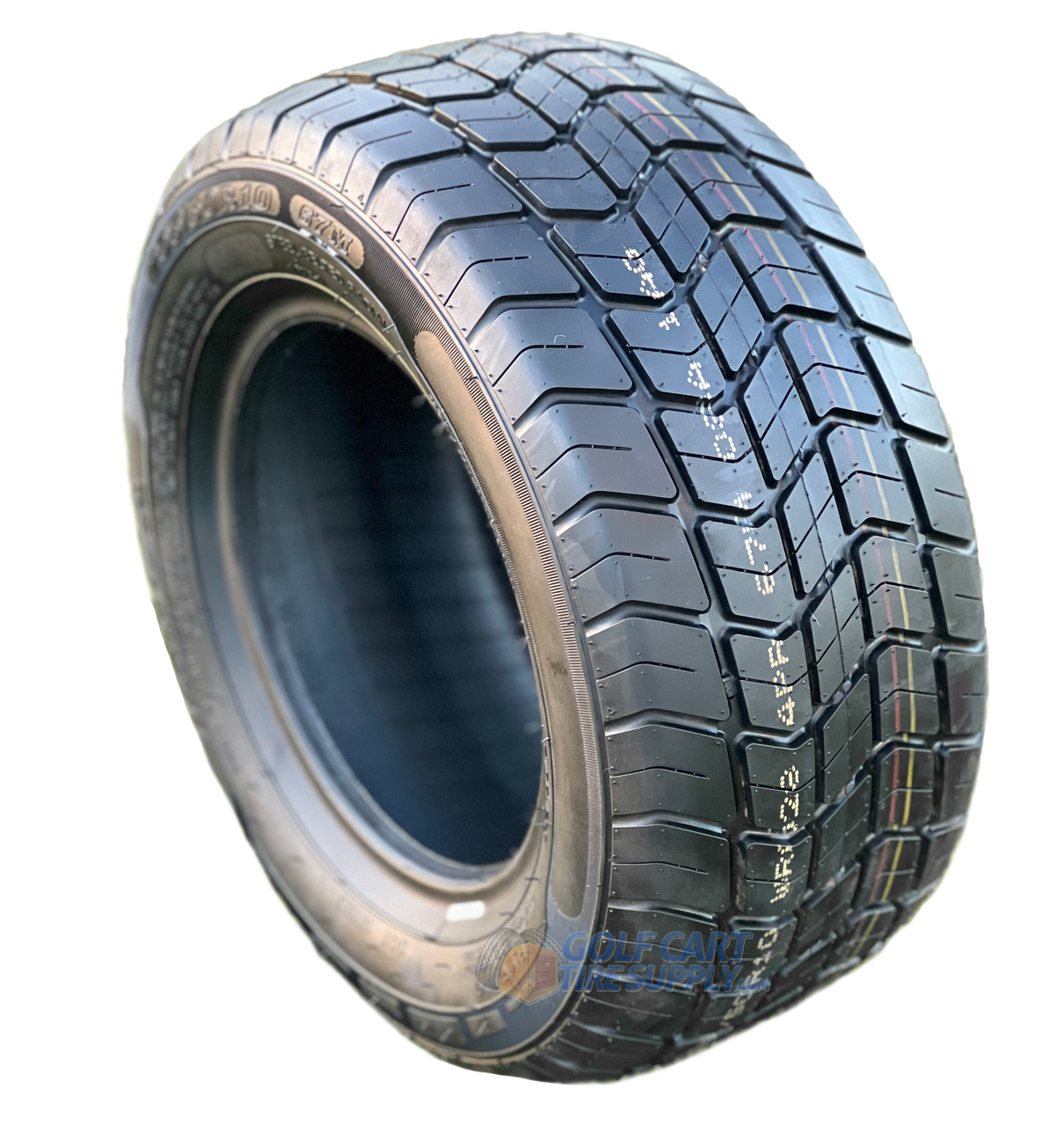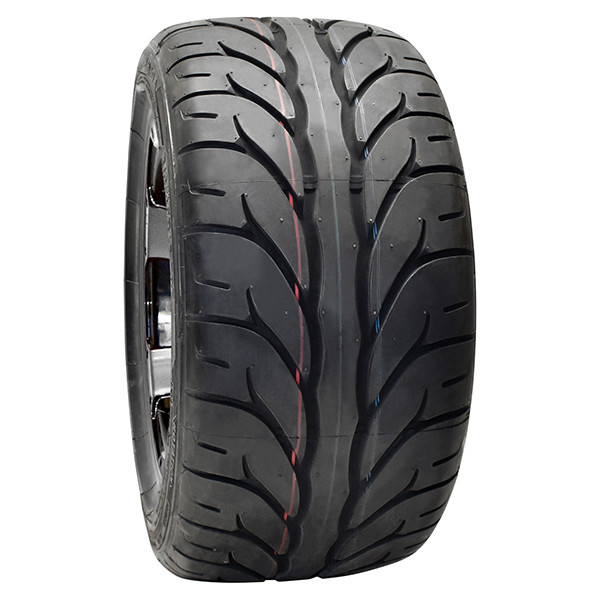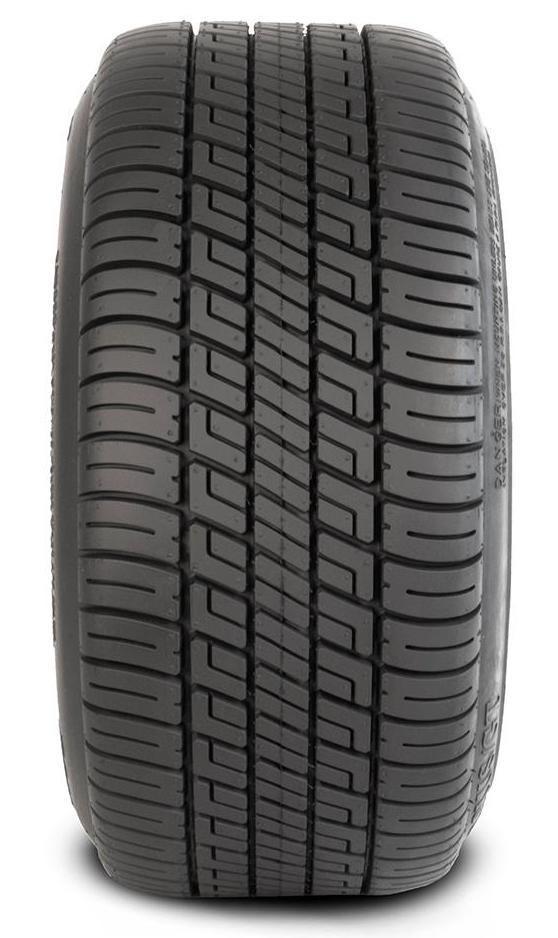


There is quite a bit of wrong information out there when it comes to bias and radial tires. We found that many articles online are old, or just plain wrong. But don't worry, we will explain it all for you in this quick and easy article below!
Once you've read our radial vs. bias ply golf cart tires guide, you will be the new tire expert at all your neighborhood parties. This article highlights the differences between Bias Ply, Nylon Radial and Steel Belted Radial tires.
When it comes to choosing golf cart tires, you want the ones that deliver a smooth ride, the best performance, and long-lasting durability. But with bias ply, nylon radial, and steel belted radial options, how do you know which type is right for you? Read on to find out quickly!
Introduction to Radial vs. Bias Ply
Radial vs. Bias ply is simply referring to the construction of the tire. It does not refer to the material used to make the tire. It just explains the direction in which the ply-layers are laid into the tire when it is made at the factory. These ply layers lie underneath the surface of your tire, and help your tire keep it's shape.
Differences Between Bias Ply, Nylon Radial and Steel Belted Radial
1. Bias Ply Tires: The Classic Choice
Construction: Nylon fabric cords are layered diagonally (45 degrees) across the tire, forming an "X" pattern.
- Benefits:
- Affordable price point.
- Comfortable ride on smooth terrain.
- Simple to repair and less expensive to replace.
- Drawbacks:
- Less stable and predictable handling at higher cart speeds.
- Prone to sidewall flex and wear.
- Not ideal for rough or uneven terrain.
2. Nylon Radial Tires: The Smooth Operator
Construction: Nylon fabric cords run perpendicular (90 degrees) to the direction of travel, stabilized by belts wrapped around the tire.
- Benefits:
- Improved ride quality and stability, even at higher speeds.
- Smoother ride by heating up less during use and holding true shape better.
- Better fuel efficiency. Radial tires can improve golf cart battery drain and gas mileage due to their reduced rolling resistance.
- Additional puncture resistance vs. bias-ply tires due to 90 degree cord pattern.
- Better handling and cornering.
- Longer tread life due to tire being more resistant to sidewall flex
- Drawbacks:
- Slightly higher cost than bias ply tires.
- Less options on the market than bias ply tires for golf carts.
3. Steel Belted Radial: The Ultimate Smooth and Puncture-Proof Powerhouse
Construction: Similar to Nylon Radials, but with a Steel Belts added under the tread for extra puncture and heat resistance. Almost every car tire on the road is a steel belted radial, because there is no better way to construct a tire you need to truly perform and last
- Benefits:
- Top level ride smoothness and stability, at all speeds.
- Best fuel efficiency due to maximum rolling resistance and retaining shape
- Most durable and puncture-resistant option.
- Excellent handling and cornering.
- Longest tread life.
- Drawbacks:
- Most expensive of the three tire types.
- While smoothy, may offer a slightly harsher (less flexible) ride than nylon radials.
|
Feature |
Bias Ply |
Nylon Radial |
Steel Belted Radial |
|
Construction |
Diagonally layered nylon cords |
Perpendicular nylon cords, stabilized by nylon belts |
Perpendicular nylon cords, stabilized by nylon belts + steel belts under tread |
|
Cost |
Lowest |
Moderate |
Highest |
|
Fuel Efficiency |
Traditional battery drain and gas mileage |
Less battery drain and better gas mileage due to lower rolling resistance |
Least battery drain and best gas mileage due to lowest rolling resistance |
|
Durability |
Moderate, prone to sidewall wear |
High, resistant to sidewall wear and punctures |
Highest, puncture resistance and highly wear resistant |
|
Tread Life |
Regular (1-3 years) |
Longer |
Longest |
Things to Consider When Choosing Your Golf Cart Tires
Now that you understand the key differences of each golf cart tire type, let's match you with the perfect tire:
- For budget-minded cruisers on smooth courses and streets, Bias Bly golf cart tires offer a comfortable and affordable option.
- For cart owners who use their cart for more than just simple rounds of golf and who prioritize a smooth and stable ride at all speeds, Nylon Radials are the clear winner.
- For the ultimate battery (or fuel) efficiency, the smoothest ride, and the longest lasting tire; Steel Belted Radial golf cart tires provide the ultimate peace of mind and performance.
Summing it All Up
In the last two to three years, there's been a big trend towards radial tires in golf carts for their extra smooth ride and efficiency. We have noticed many brands beginning to offer radial options. Some higher end brands, such as TREX will only offer radial tires in their lineup. This shift towards radial tires in golf carts has been driven by the desire for a smoother and more efficient ride as owners continue to use their carts more and more in their daily routines.
When choosing between Radial tires vs. Bias Ply, consider the differences of each type and how they align with the way you use your cart the most. Golf course-only carts likely don't need radial tires on them (it's overkill). But for any carts used off the course, we highly recommend trying Nylon Radial or Steel Belted Radial tires today! As always, if you have any questions about your golf cart tires you can give us a call at 1-844-422-7884 and we will be happy to help!
Updated: 12-15-2023 | Read Time: 4-mins






